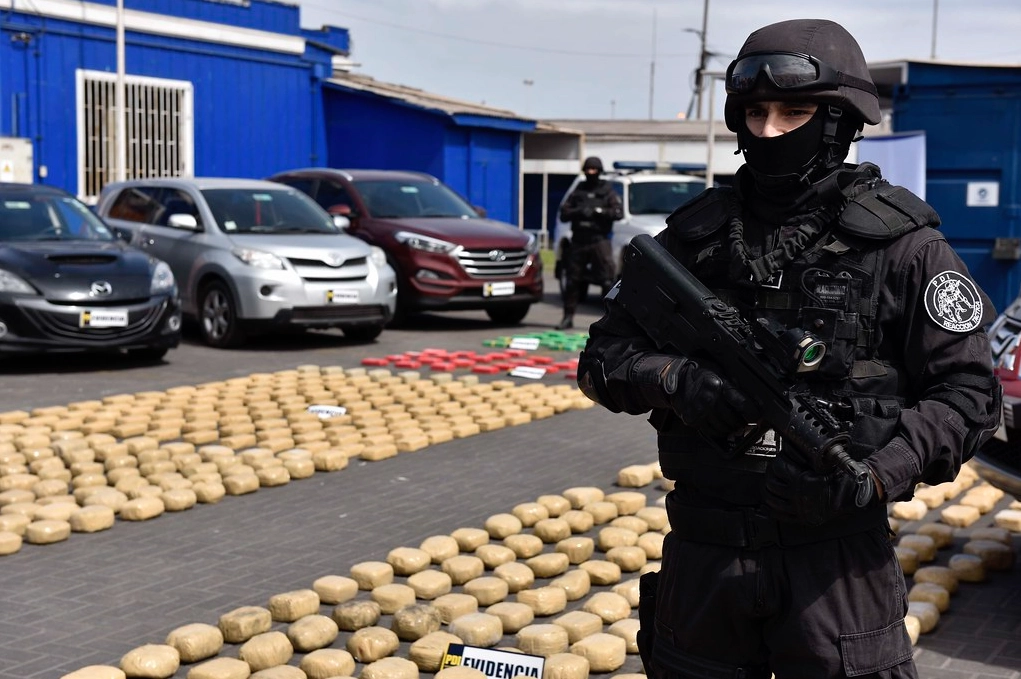The fight against organized crime is one of the most pressing and complex challenges to global security. In recent decades, the evolution and continuous growth of this phenomenon is evident, characterized by the emergence of new types of crimes, the increase in their transnational scope, and the constant improvement in the techniques used by criminal organizations.
Although it has been a persistent global concern, the lack of consensus among states has hindered efforts to address it effectively. International coordination has faced significant challenges due to the difficulty of establishing shared positions between countries on this complex issue. Only in 2000 was substantial agreement reached through the United Nations Convention against Transnational Organized Crime, also known as the Palermo Convention. This agreement provided an important framework to guide countries in addressing organized crime within their jurisdictions.
At the same time, multilateral commitments have sought to facilitate actions aimed at monitoring, preventing, detecting, prosecuting, and punishing national organized crime, using international standards as a reference and promoting responses adapted to national realities. However, the consensus between states has not been strong enough to address this problem from a broad and coordinated perspective that transcends national borders and addresses its multiple dimensions.
Given the proliferation of criminal activities, the lack of political will and limited transnational coordination to address this issue contribute to the complexity of organized crime. According to the Corruption Perceptions Index, the Americas have an average score of 43 out of 100 due to the lack of strong measures to combat corruption and strengthen institutions. Countries, especially in Latin America, often face difficulties in cooperating in the investigation and prosecution of cross-border crimes due to differences in legal frameworks, lack of resources, communication problems, corruption, and even political differences between the governments in power. This lack of coordination has allowed criminal organizations to operate with impunity and take advantage of loopholes in criminal justice systems to continue their illicit activities.
As a consequence, organized crime has evolved significantly in recent decades, adapting to changes in the socioeconomic and technological environment to expand its operations and increase its influence. According to the United Nations Office on Drugs and Crime’s World Drug Report 2021, the illicit drug trade represents a multi-billion dollar global market, fueling corruption, violence, and insecurity. It is a fact that the export of criminal phenomena such as human trafficking, arms trafficking, cybercrime, or fleeing permanently challenges traditional law enforcement approaches.
The globalization of the criminal economy
Contemporary organized crime is notable for its transnationality and its ability to take advantage of economic globalization. Criminal organizations have developed international networks to move easily across borders and take advantage of the differences between the legal and financial systems of different countries. The criminal economy is big business, accounting for up to 1.5% of the world’s gross domestic product, with annual revenues exceeding US$870 billion.
At the same time, Latin American countries have recognized the seriousness of organized crime in various multilateral regional declarations, such as the Declaration on Security of the Americas in 2003. In Mexican and Colombian regions, the absence of the state has allowed organized crime groups to take control over the population and territory. In addition, transnational organized crime has recently emerged as an international security problem, underscoring its magnitude and impact in the region.
What can be done to address this phenomenon? Different analysts agree that it is necessary to strengthen international cooperation mechanisms and promote greater harmonization of regional laws and legal procedures.While the United Nations Convention against Transnational Organized Crime and other international initiatives provide a legal framework for combating global organized crime, their effectiveness depends largely on the political will and committed cooperation of states.
Citizen security continues to be of concern to the population, especially in regions where the presence and influence of organized crime is most pronounced. The UN Global Report on Citizen Security indicates that violence and crime represent a significant threat to the well-being and security of citizens in many parts of the world, causing more deaths than armed conflicts. Besides, it is an issue whose complexity lies in the need to address not only the visible manifestations of crime but also the root causes that fuel it.
These challenges call for coordinated and multidimensional action involving all sectors, from government to civil society. This involves not only strengthening law enforcement capabilities and improving law enforcement but also addressing the underlying causes of crime, such as economic inequality, social exclusion, and lack of opportunities for young people. Citizen participation and the empowerment of local communities must also be encouraged to prevent and combat crime. Also, it is important to promote a culture of legality and respect for the rule of law. However, this should not be done in isolation, but should be given the regional importance that the problem deserves.
The need for regional mechanisms
In a context marked by transnational organized crime, it is imperative to strengthen regional cooperation mechanisms to address this threat effectively. Although there are regional initiatives in Latin America — such as the Organization of American States and the Union of South American Nations, as well as international criminal police organizations with a presence in the region — such as Interpol and Ameripol — the lack of political will and divergent interests of member countries often hinder the implementation of common security strategies. In turn, cooperation between law enforcement agencies from different countries remains limited, given the differences in each nation’s legal frameworks and policies.
Finally, to overcome these challenges, it is necessary to promote greater regional integration and coordination in the fight against organized crime, strengthening mechanisms for information exchange, joint training and operational cooperation between countries. Such actions could include the integration of regional mechanisms that would allow police forces to have the capacity to investigate and prosecute transnational crimes, as well as the harmonization of legal procedures and security laws. In addition to an unfinished but crucial issue: promoting a culture of trust and collaboration among the countries of the region, recognizing that security is a public good that must be protected and promoted for the benefit of all citizens.
*Translated by Micaela Machado Rodrigues from the original in Spanish.












